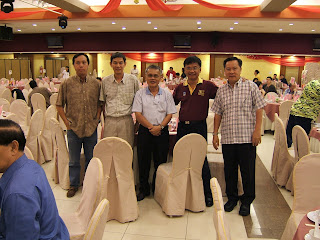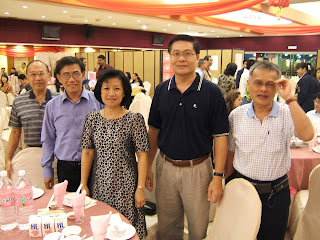 I realise from the blog archive that it's been five months since my post on our memorable meet-up with Yong Been in Ipoh in July and our 'Korean' is back in town again! He seems to like the relaxed, laid-back Ipoh life after having lived in big cities in the States, Korea and Hong Kong. He is back with wife Karen, to chill out and play golf at the Meru Resort and and is looking to acquire a property. And why not, with the dirt-cheap prices of properties here which, coupled with the lower cost of living, amongst others, make this an ideal place for retirement.
I realise from the blog archive that it's been five months since my post on our memorable meet-up with Yong Been in Ipoh in July and our 'Korean' is back in town again! He seems to like the relaxed, laid-back Ipoh life after having lived in big cities in the States, Korea and Hong Kong. He is back with wife Karen, to chill out and play golf at the Meru Resort and and is looking to acquire a property. And why not, with the dirt-cheap prices of properties here which, coupled with the lower cost of living, amongst others, make this an ideal place for retirement.A few of us met up for dinner at the Mun Choong Restaurant behind Lido. It was great to have a teacher join us this time too - Mr Chin Yoong Kim. Good food, good drink (wine with compliments of Mr Chin), warm camaraderie make an enjoyable evening.


















































If there are any fellow HH boarders around Ipoh or in Malaysia, let me know, I will be visiting malaysia between 27th and 31st July 2007.
Know the whre abouts of Kenneth Lee or Benny Yee or their friends? Let me know at yblim@jupsys.com
I can roughly remember someone who fits your description in my class and is also known as "Korean". Are you born around 1956? Benny Yee sounds familiar too. But it has been such a long time. I left ACS in 1976 after Upper Six.